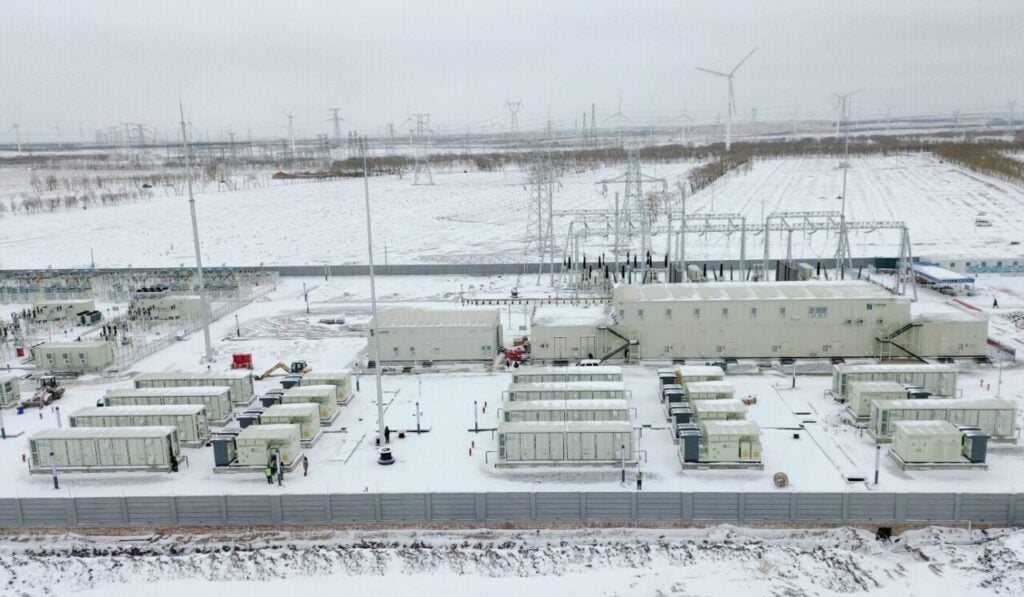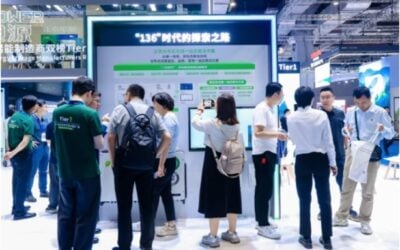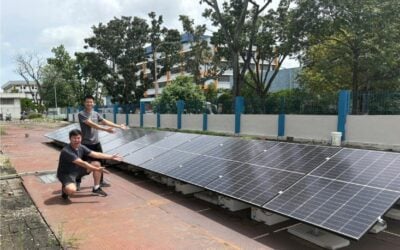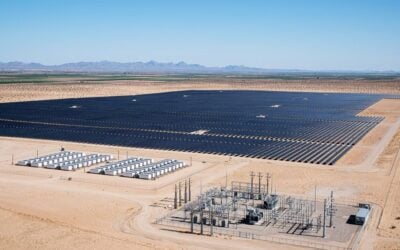
State-owned EPC firm China Power Construction Group (Power China) recently concluded a 16GWh BESS supply tender, which resulted in extremely low prices amidst a squeezing of market share and increased buying power from state-owned companies, an S&P analyst told Energy-Storage.news.
The tender for the design, manufacture, installation and 20-year operations & maintenance (O&M) of battery energy storage systems (BESS) for Power China’s 2025-2026 projects was announced on 13 November, and the results were released last week.
Enjoy 12 months of exclusive analysis
- Regular insight and analysis of the industry’s biggest developments
- In-depth interviews with the industry’s leading figures
- Annual digital subscription to the PV Tech Power journal
- Discounts on Solar Media’s portfolio of events, in-person and virtual
According to local news reports, the tender attracted 76 bidders with quoted prices ranging from US$60-82 per kWh, averaging US$66.3 per kWh. Based on the 16GWh quantity, that implies a total contract value of roughly US$1 billion.
The tender document from November says that bidders need to have ‘battery cells, PCS (power conversion systems) and EMS (energy management systems)’, implying a turnkey BESS solution. It also requires the batteries to be built within three months of the contract being signed, and a clean three-year fire safety record for the company.
Ex-Fluence employee Marek Kubik described the numbers as “mind-blowing” in a post on business networking site LinkedIn, on which numerous other industry sources also commented their awe and shock at such low prices for a turnkey BESS solution, even for China. BloombergNEF recently noted a global average price for BESS (without PCS or EMS) of US$125 per kWh, for example.
Kubik suggested the tender’s requirements implied it covered an AC block solution. Energy-Storage.news looked at the move towards PCS-integrated AC blocks in a recent article (Premium access).
Huge buying power
Anqi Shi, Shanghai-based analyst for S&P Commodity Insights, focused on energy storage in China, said that when assessing the results it’s important to acknowledge the buying power dynamics in China’s power market.
China has five ‘major’ and six ‘minor’ state-owned power generation companies that develop, own and operate a majority of its generation assets, and Power China is one of two engineering, procurement construction (EPC) firms that build most of those assets, the other being CEEC. EPCs in China are increasingly procuring and installing BESS for their customers.
“As equipment suppliers, collaborating with these state-owned enterprises is important for not only any single tender, but also assessing long-term opportunities from China’s power sector,” Shi said.
CEEC and two of the ‘major’ generation firms have now established their own energy storage system integration subsidiaries to supply their parent firms’ projects, Shi explained. Those and other state-owned system integrators are squeezing market share of private firms.
This therefore leaves Power China with huge buying power, as the only EPC firm of that scale to which privately-owned system integrators can supply BESS equipment, Energy-Storage.news notes.
“With over 100% global oversupply in battery cells and energy storage systems as of 2024, some private companies in China are trying to get orders by bidding at loss,” Shi explained.
“Average LFP (lithium iron phosphate) tender prices (including PCS and batteries) have gradually dropped from around US$120/kWh in January to around US$80/kWh in November. With some of the large-scale tenders releasing results in December, the prices are expected to continue downwards. The downward cost pressure is spreading to other regions as Chinese suppliers looking to expand overseas, where the price can be twice as expensive as China.”
The company is sometimes also referred to as China Power Construction Corporation.






